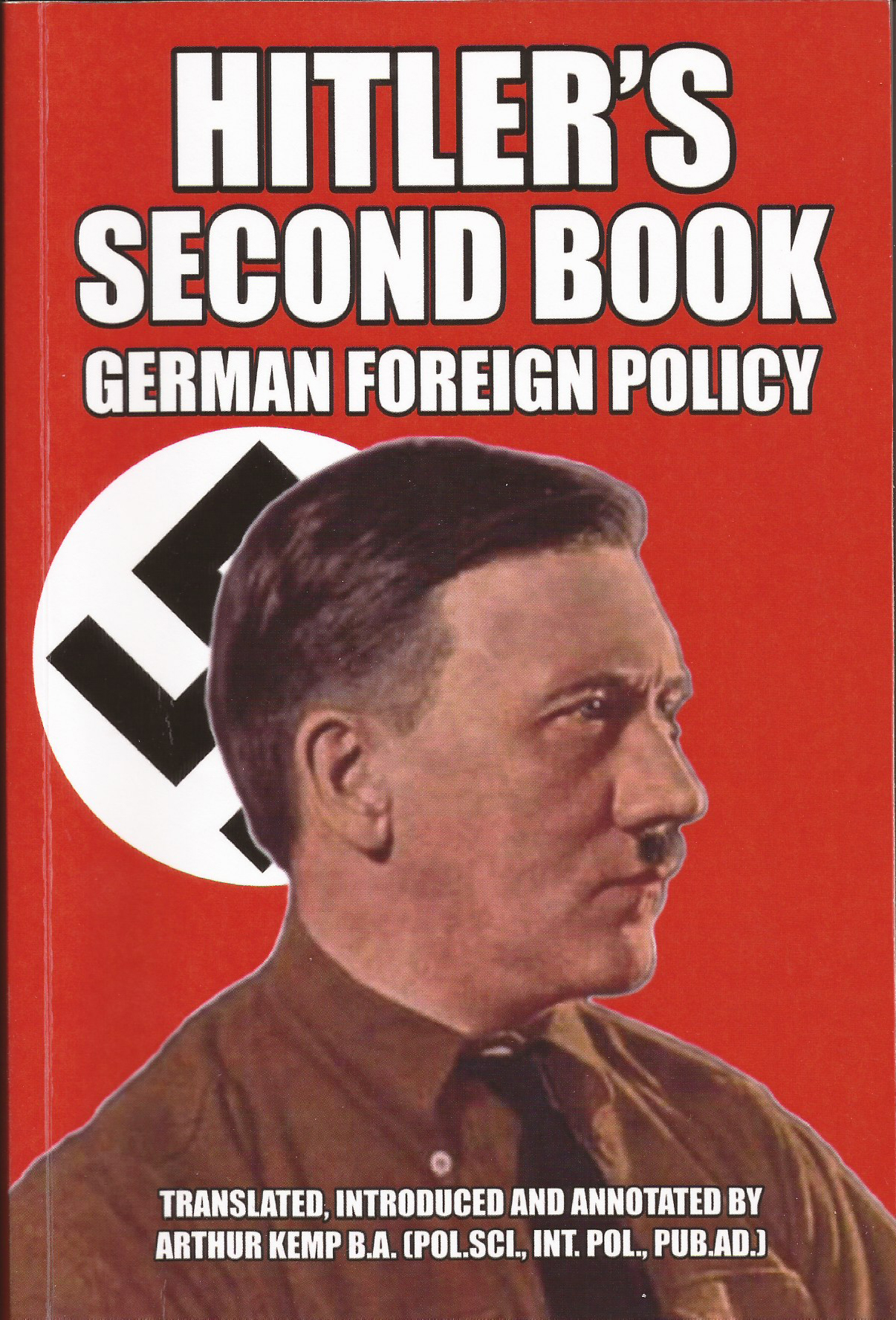Excerpted from “War and Peace,” Chapter 1 of Hitler’s Second Book. The whole chapter includes these subjects: History is the story of peoples’ struggles for existence—Peace and war as means of waging the struggle—Neither should be the sole means—Too much war kills off the elite—Too much peace leads to submissiveness and emigration.
In the times before man, world history was primarily a presentation of geological events: the struggle of natural forces with one another, the creation of an inhabitable surface on this planet, the separation of water from land, the formation of mountains, of plains, and of the seas.
Later, with the emergence of organic life, man’s interest concentrated on the process of becoming and the passing away of its thousandfold forms.
And only very late did man finally become visible to himself, and thus by the concept of world history he began to understand first and foremost only the history of his own becoming, that is, the presentation of his own evolution. This evolution is characterised by an eternal struggle of men against beasts and against men themselves. From the invisible confusion of the organisms there finally emerged formations: Clans, Tribes, Folks, States. The description of their origins and their passing away is but the representation of an eternal struggle for existence.
If, however, politics is history in the making, and history itself the presentation of the struggle of men and nations for self preservation and continuance, then politics is, in truth, the execution of a nation’s struggle for existence. But politics is not only the struggle of a nation for its existence as such; for us men it is rather the art of carrying out this struggle.
Since history as the representation of the hitherto existing struggles for existence of nations is at the same time the petrified representation of politics prevailing at a given moment, it is the most suitable teacher for our own political activity.
If the highest task of politics is the preservation and the continuance of the life of a Folk, then this life is the eternal stake with which it fights, for which and over which this struggle is decided. Hence its task is the preservation of a substance made of flesh and blood. Its success is the making possible of this preservation. Its failure is the destruction, that is, the loss of this substance.
Consequently, politics is always the leader of the struggle for existence, the guide of the same, its organiser, and its efficacy will, regardless of how man formally designates it, carry with it the decision as to the life or death of a Folk…
Therefore, wise political leaders of a Folk will never see in war the aim of the life of a Folk, but only a means for the preservation of this life. It must educate the human material entrusted to it to the highest manhood, but rule it with the highest conscientiousness.
If necessary, when a Folk’s life is at stake, they should not shrink from daring to shed blood to the utmost, but they must always bear in mind that peace must one day again replace this blood.
Wars which are fought for aims that, because of their whole nature, do not guarantee a compensation for the blood that has been shed, are sacrileges committed against a nation, a sin against a Folk’s future.
The culture of European Folks rests on the foundations which its infusion of Nordic blood has created in the course of centuries. Once the last remains of this Nordic blood are eliminated, the face of European culture will be changed, the value of the States decreasing, however, in accordance with the sinking value of the Folks…
The peasant youth who emigrated to America 150 years ago was as much the most determined and most adventurous man in his village as the worker who today goes to Argentina.[1] However, the positive gain for the new country is thus a loss for the mother country.
The fundamentally peaceful policy, with the subsequent bleeding to death of a nation through emigration and birth control, is likewise all the more catastrophic the more it involves a Folk which is made up of racially unequal elements.
For in this case as well the best racial elements are taken away from the Folk through emigration, whereas through birth control in the homeland it is likewise those who in consequence of their racial value have worked themselves up to the higher levels of life and society who are at first affected. Gradually then their replenishment would follow out of the bled, inferior broad masses, and finally, after centuries, lead to a lowering of the whole value of the Folk altogether. Such a nation will have long ceased to possess real life vitality.
Thus a policy which is fundamentally peaceful will be precisely as harmful and devastating in its effects as a policy which knows war as its only weapon.
Politics must fight about the life of a Folk, and for this life; moreover, it must always choose the weapons of its struggles so that life in the highest sense of the word is served. For one does not make politics in order to be able to die, rather one may only at times call upon men to die so that a nation can live.
The aim is the preservation of life and not heroic death, or even cowardly resignation.
___________________
[1] Between 1885 and the First World War, more than 100,000 German speaking immigrants settled in Argentina.

2 replies on “Zweites Buch, 1”
Glad you posted this. Certainly wouldn’t see this kind of insight in any of today’s politicians.
Absolutely, and welcome to this forum Justin.